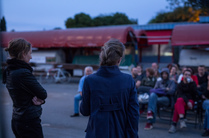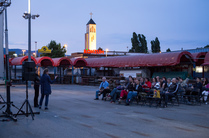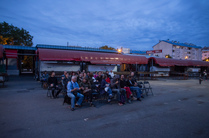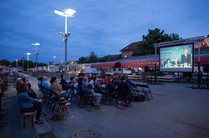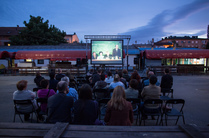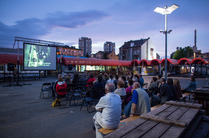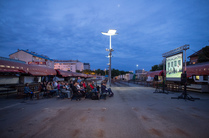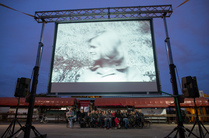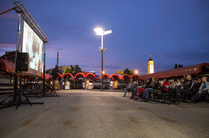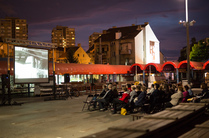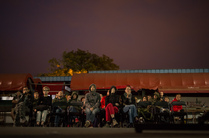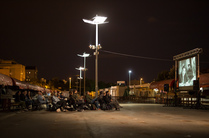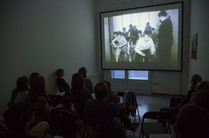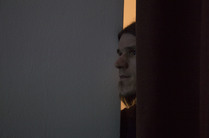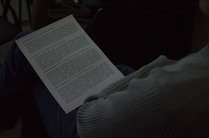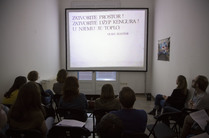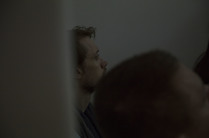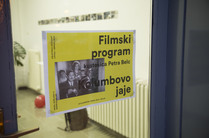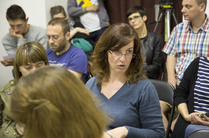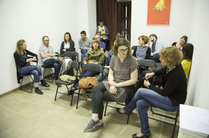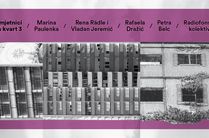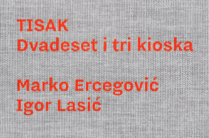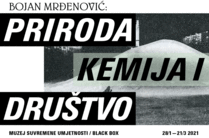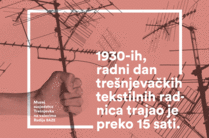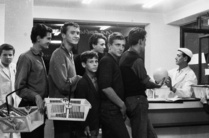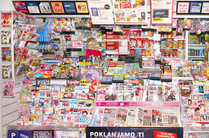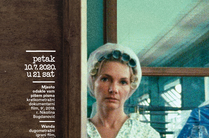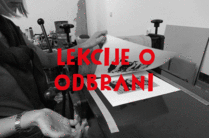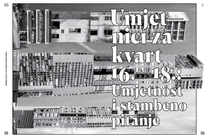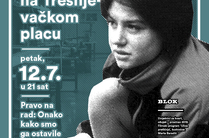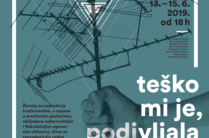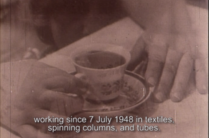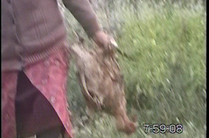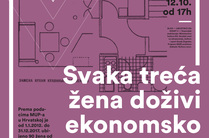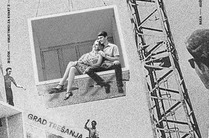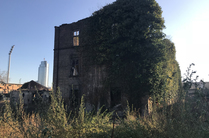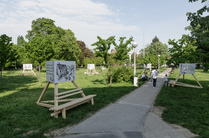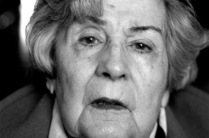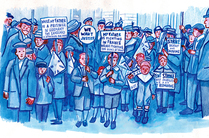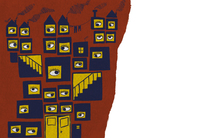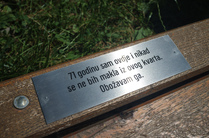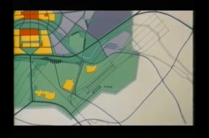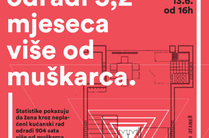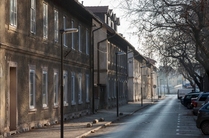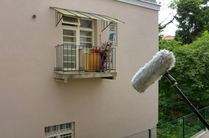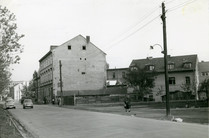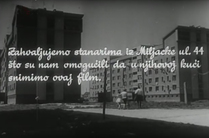FILM PROGRAMME EGG OF COLUMBUS

curator: Petra Belc
photo documentation: Damir Žižić
first screening: Wednesday, May 25 2016, 8 pm
second screening: Tuesday, June 28 2016, 8 pm
BAZA, Božidara Adžije Street 11
third screening: Friday, July 15 2016, 9 pm
Trešnjevka square
Spaces written by cinema and shaped by urbanism are moulding and structuring our everyday life in numerous ways, which is why the focal point of the film programme dedicated to housing is two-fold: the question of planned housing for the working class is examined on the background of different forms through which film art has tried to articulate it in the last hundred years. From the early film-propaganda optimism and innovation in the development of the documentary form, through its sharp ironising and satire, to the experimental forms which focus on a direct relationship of man to his home, they try to bring into focus the complex relationships of an individual and the utopian / ideal visions of housing.
PROGRAMME
first screening
50'18''
----------
My apartment (1962), 12'42'', d: Zvonimir Berković, feature film
The House (1977), 7'36'', d: Radoslav Vladić, experimental
Housing Problems (1932), 13', d: Edgar Anstey, Arthur Elton, documentary
Une vie radieuse (2013), 17', r: Meryll Hardt, experimental
What is more alienating, the nervousness of a cramped little apartment or the freedom of movement in a geometric harmony of space? What is the difference between a house and a building observed from inside of their warm family nests? What is the general importance of such issues and comparisons if we look at them through the prism of slum housing areas deprived of basic living conditions? One possible answer to this question is an insightful and witty summarizing of the heroine in a short film by Berkovic, My apartment, the winner at Cannes in 1963, "Dad said not to lose hope, one day we will find the egg of Columbus. I asked mum what the egg of Columbus was, she said that it was the solution for a new apartment. "
Therefore, films in the programme represent a reflection and a review of the architectural quest for an ideal, or at least practical and satisfactory solution of housing issues. In this endeavour they develop their own formulating language, giving the viewer a possibility to consider, through interplay of film and urbanism, the ways in which to force the egg of Columbus to remain standing upright.
second screening
61'
---------
Četverodimenzionalna kuća [Four-dimensional House] (1982), 9′, d: Mirjana Božin
Concrete Stories (2014), 52', d: Lorenz Findeisen
A poetic-structural story of a woman, with references to the hypercube of the Canadian experimentalist and animator Norman McLaren, is opposed to multiple stories of citizens of Europe, whose homes lay in concrete blocks of standardized residential buildings. Four-dimensional house (1982) by poet Mirjana Božin describes, in meditative film processes, the interior of the author's room and the emotion of the private sphere, while in the Concrete stories (2014) the director Lorenz Findeisen deals with confessions of different inhabitants of identical socialist homes, weaving a network of the economic and political-historical reasons that led to the construction of a uniform type of socialist neighbourhood. "Everything is the same, only the furniture is different," one of the protagonists of the Concrete stories will say, while in the announcement for the film the director states: "Very soon, our socialist revolution will begin in your own living room."
third screening
129'
----------
The Tenancy Rights of Safer the Miner (1974), 12', d. Petar Ljubojev, documentary
Cathy Come Home (1966), 117', d. Ken Loach, feature film
The question of bureaucratic care for workers and (in)ability to acquire tenancy rights in certain socio-economic regimes are the focus of the last screening of the film programme Egg of Columbus. A short documentary by Sarajevo author Petar Ljubojev, The Tenancy Rights of Safer the Miner, is part of the Sarajevo School of documentary film organised within the Sutjeska film production company, which focused on commenting social issues through the research of certain aspects of Yugoslav society and its promised utopias in the 1960s and 1970s. Ljubojev follows miner Safer Korlaković and his family who have finally earned the right to the allocation of a welfare apartment, while critically sharply and wittily commenting on class stratification and the work of state bureaucratic structures.
The television drama Cathy Come Home by the British director Ken Loach brings a lot darker image of a search for an apartment in a welfare state. The issue of women's rights, unemployment, poverty and homelessness portrayed by Loach in the mid sixties in England are equally close to contemporary (local) events, while from the perspective of a young couple in Loach's drama Ljubojev's critical examination of the Yugoslav solution to the housing crisis has very different contours.
